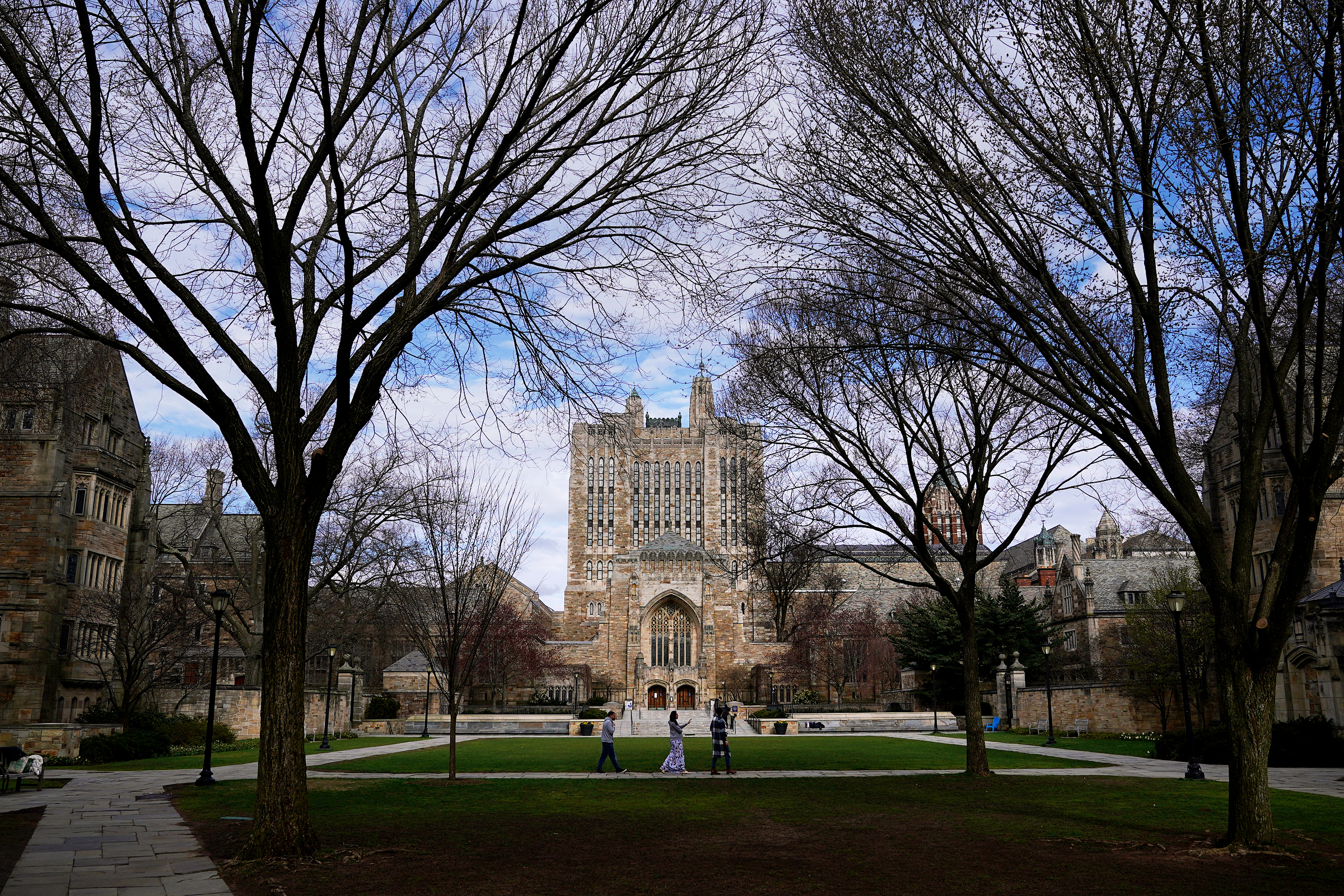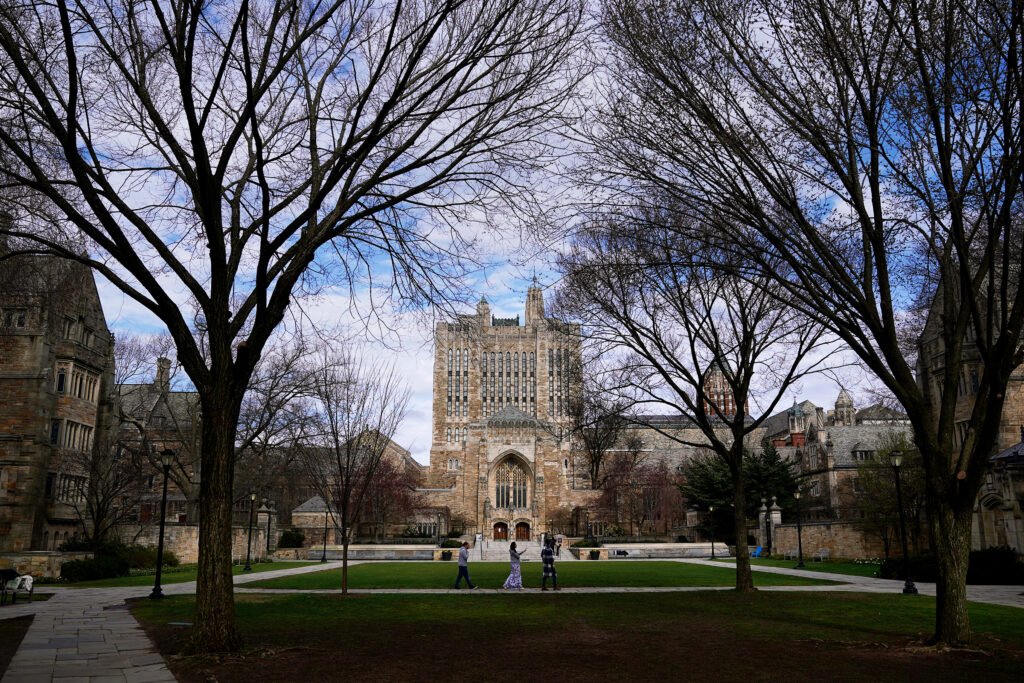The University has claimed that its first-ever sale on the secondaries market is a portfolio “cleanup” rather than a shift in investment strategy, as it navigates slowing returns in the private equity market.
Baala Shakya
Staff Reporter

Tim Tai
Yale is negotiating a sale of nearly $3 billion of its private equity portfolio on the secondaries market.
Marcella Rooney, a spokesperson for the Yale Investments Office, told the News that the deal, code-named “Project Gatsby,” would allow Yale to convert its private equity assets into liquid assets for reinvestment. Rooney said that the move is not a shift in the University’s investment strategy; rather, secondary sales are a standard portfolio management tool used by institutional investors.
Still, the deal will be the University’s first-ever sale on the secondaries markets, Rooney said. The secondaries market allows investors to purchase existing assets from other investors rather than directly purchasing stakes from private companies.
“This is not a ‘break glass in case of emergency’ sale,” Rooney told the News. She emphasized that this transaction should not be viewed as a departure from Yale’s typical strategy of endowment investment.
Yale’s investment strategy — one that has been widely embraced and is known as the “Yale Model” — favors a broad diversification of assets by allocating less to traditional U.S. equities and bonds and more to alternative investments like private equity, venture capital, hedge funds and real estate.
Four experts interviewed by the News said that this sale could reflect Yale’s evaluation that the private equity market is experiencing a period of weak performance, thus generating less profits for the endowment. The sale comes as the U.S. Senate considers the Republican budget bill, greenlighted by the House of Representatives, that would increase the tax on Yale’s endowment investment income from 1.4 to 21 percent.
Talks of selling parts of the portfolio began as early as quarter three of 2024 — July 1 through Sept. 30 — despite recent speculation linking the move to federal tax threats and slowing endowment returns, Rooney said.
She confirmed that Evercore — an independent investment bank that provides services in financial research, institutional asset management and private equity investing — has been advising Yale “for months” on the potential private equity sale, but declined to specify exactly how many.
The University’s $41.4 billion endowment grew modestly in fiscal year 2024 but has underperformed since 2022. While Yale’s 10-year return of 9.5 percent ranks second among Ivy League peers, its investment returns have not reached the 8.25 percent threshold required to sustain its current level of spending for the past three fiscal years. In response, administrators have announced a “far more constrained” budget for the 2026 fiscal year and implemented cuts to faculty hiring, salary increases and construction projects.
According to the University’s financial report, Yale held more than $20 billion in leveraged buyout and venture capital funds as of June 30, 2024. Approximately 95 percent of its endowment is invested in alternative assets, a reflection of the “Yale Model,” which moves investments away from traditional stocks and bonds in favor of higher-risk, higher-return private investments.
However, Joshua Cascade, a professor of private equity at the Yale School of Management, said the move to sell may reflect Yale’s assessment that private equity markets are entering a prolonged downturn.
Cascade noted that rising interest rates have slowed private equity fundraising and exit activity, making it harder for firms to return capital to investors. He called the current down cycle in private equity as being “in many ways worse than the Great Financial Crisis.”
“They’re selling at a time when the upside to private equity is probably the least it’s been in years,” Cascade said. “They’re only selling at a slight discount because they’re selling it to secondary buyers who are flooded with cash. It’s really smart and it’s exactly what I would do.”
Cascade noted that by selling now before other institutions flood the secondaries market, Yale may be able to “offload aging or lower-performing holdings at a relatively modest discount and reallocate capital toward more promising investments.”
The University is mostly selling its older assets through a mosaic deal, which allows buyers to choose specific investments, the Investments Office spokesperson said. Rooney expects the sale to close at a discount of less than 10 percent — meaning Yale would sell the asset for slightly less than what it is currently worth on the market — a figure considered attractive in today’s financial environment.
John Longo, a professor of finance and economics at Rutgers Business School, speculated that both the endowment tax proposal and recent federal budget threats may have still factored into Yale’s decision.
Some experts, however, have questioned whether these threats justify Yale’s budget tightening.
Howard Bunsis, a professor of accounting at Eastern Michigan University’s College of Business who has analyzed over 100 universities’ finances, told the News that Yale continues to generate more income than it spends each year and maintains low levels of debt.
“Yale still has a triple-A bond rating better than the United States government, so I don’t see the problem,” said Bunsis. “I just do not think these universities have any significant issues financially, and they can deal with whatever they need to deal with in the short term. It’s really rich to cry poverty when you have a triple-A bond rating and you have this budget reserve.”
A triple-A bond rating is the highest possible bond rating — a measure of how likely an institution is to repay its debt — and few universities share this distinction.
Cascade emphasized that Yale’s move falls in line with peer institutions like Harvard, which is also exploring a $1 billion private equity sale. MIT’s endowment, run by former Yale University Investments Office director Seth Alexander ’95, is also researching a potential sale of private equity.
The Yale Investments Office is located at 55 Whitney Ave.





